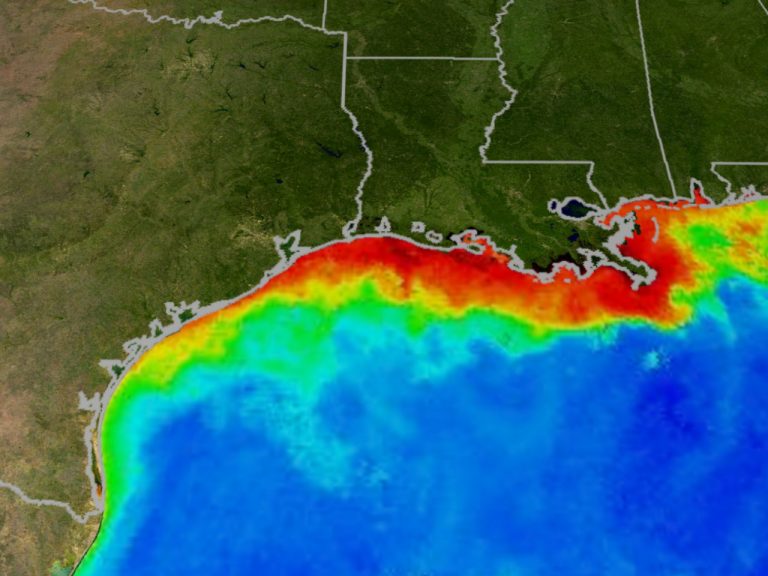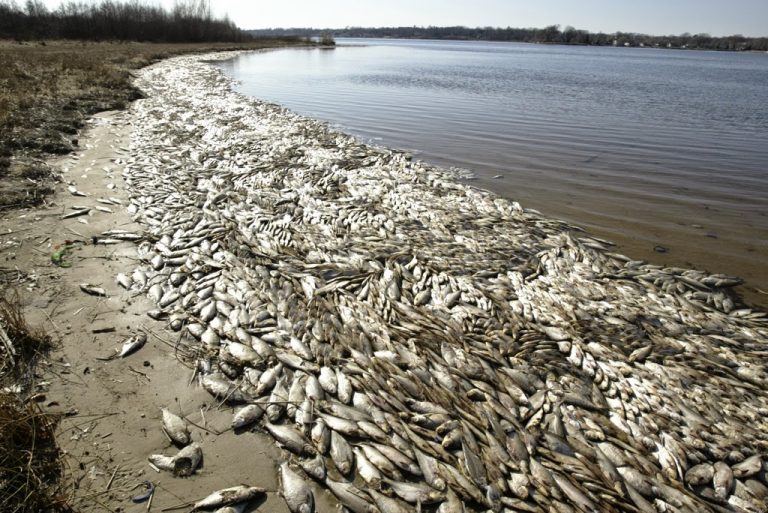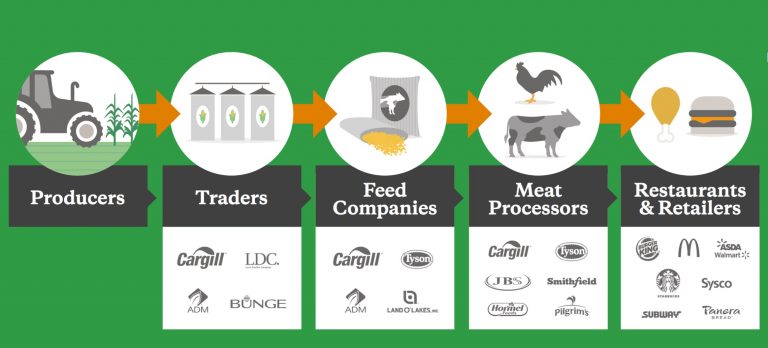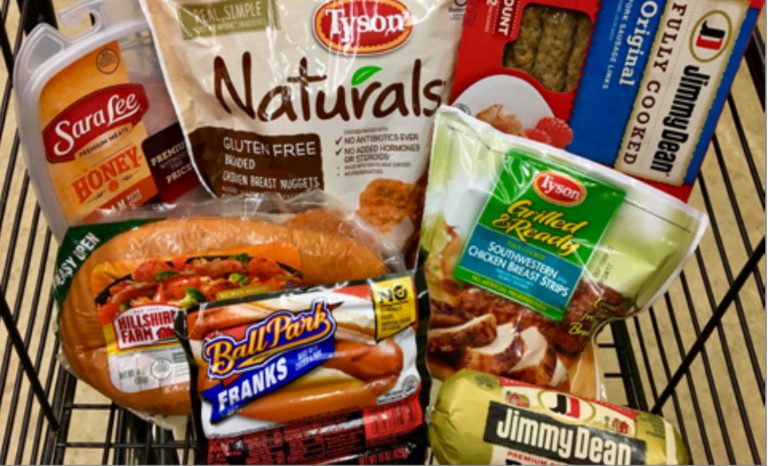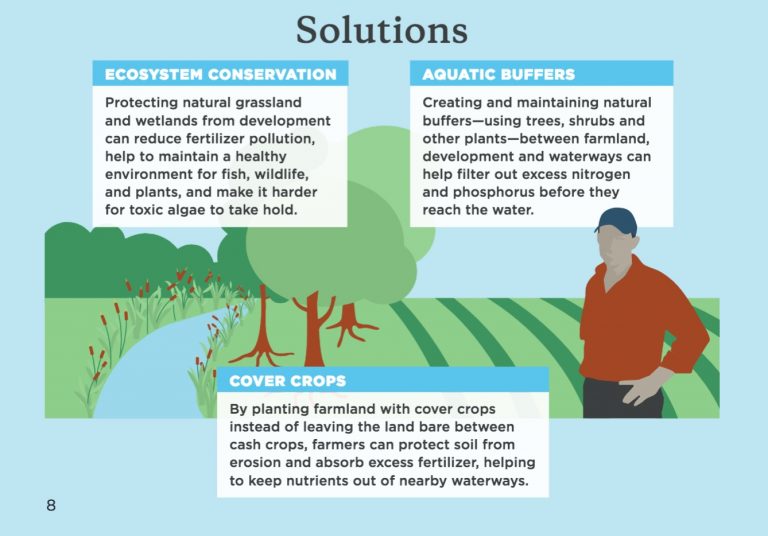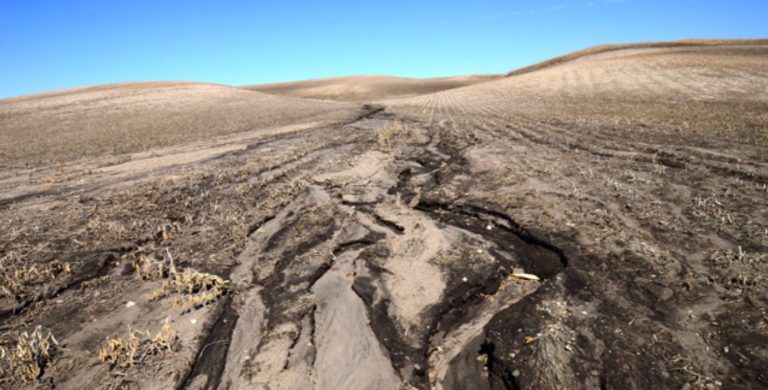Return to Now: Investigation Reveals Tyson Foods as #1 Culprit in Largest “Dead Zone” on Earth
posted November 1, 2017
Nearly 9000 square-miles of ocean along the Gulf Coast is uninhabitable by marine life. Loaded with agricultural toxins and devoid of oxygen, it’s the largest “dead zone” in US history, and last summer it got even bigger.
We’ve known the cause of the ecological “dead zone” for decades — fertilizer run-off from Big Agriculture via the Mississippi River — but a new investigative report identifies the number one polluter by name, Tyson Foods.
The Washington DC-based environmental organization Mighty Earth set out to determine which specific companies were most responsible for “the widespread manure and fertilizer pollution contaminating water from the Heartland to the Gulf.”
“America’s largest meat company, Tyson Foods, stood out for its expansive footprint in all the regions suffering the worst pollution impacts from industrial meat and feed production,” a press release about the August report says.
Smithfield was second to Tyson for the highest levels of nitrate contamination in areas where runoff ends up in the Gulf, followed by Cargill, Hormel, and JBS.
“Iowa, where 65 percent of the state is covered in corn and soy, is suffering the highest concentrations of nitrate pollution in the country, at levels far exceeding the federal standard for safe drinking water,” the report states. Tyson and Smithfield each have six major pork processing facilities in Iowa.
Tyson is also the dominant meat producer in the Ozark Plateau region of Arkansas and Missouri, which has the highest phosphorus contamination rates in the country.
Additionally, Tyson’s top feed suppliers — Cargill and ADM — are behind the bulk of recent natural grassland destruction, converting the last of our endangered prairie to corn and soy fields.
Tyson — consistently ranked among the top polluters in America — produces one out of every five pounds of meat produced in the United States. It owns dozens of brands including Jimmy Dean, Hillshire Farm, Ball Park, and Sara Lee, and provides the bulk of meat sold in fast food restaurants like McDonalds.
U.S. agriculture creates almost twice as much pollution in the Gulf of Mexico as the BP oil spill every single year. Last year alone 1.15 million metric tons of nitrogen flowed into the Gulf, while British Petroleum spilled 670,000 metric tons of oil, according to USGS.
Not only does agriculture pollute the ocean, it pollutes local drinking water supplies throughout the country.
More than 7 million Americans are exposed to unhealthy levels of nitrate contamination in their drinking water, according to a recent analysis by the Environmental Working group.
Unfortunately the number one contributor to this contamination — agriculture — is largely exempt from federal laws designed to protect drinking water.
“Americans should not have to choose between producing food and having healthy, clean water,” Mighty Earth campaign director Lucia von Reusner said in the press release. “Big meat companies like Tyson have left a trail of pollution across the country, and have a responsibility to their customers and the public to clean it up.”
Since the release of the report, Mighty Earth has begun a campaign called #CleanItUpTyson. You can sign the petition here.
The report also provides a list of ways to alleviate the problem in the future:
- Planting natural grassland buffers around crops to absorb nutrient run-off and prevent soil erosion.
- Using proper fertilizer application.
- Diversify beyond corn and soy. Including rotational small grains like oats, wheat, barley, rye and triticale in feed rations enhances soil nutrients, reduces need for chemical fertilizers and improves animal health.
- Implement more responsible manure management. While the sheer volumes of manure generated in confined animal feeding operations make “sustainable manure management” a bit of a misnomer, dumping manure in open lagoons or onto already saturated fields prone to flooding and run-off are the worst industry practices.
- Enact a moratorium on prairie loss. Many of the world’s largest food companies have adopted policies not to source foods like soy and palm oil from suppliers destroying tropical ecosystems – they should also refuse to purchase feed from companies destroying American prairies.
